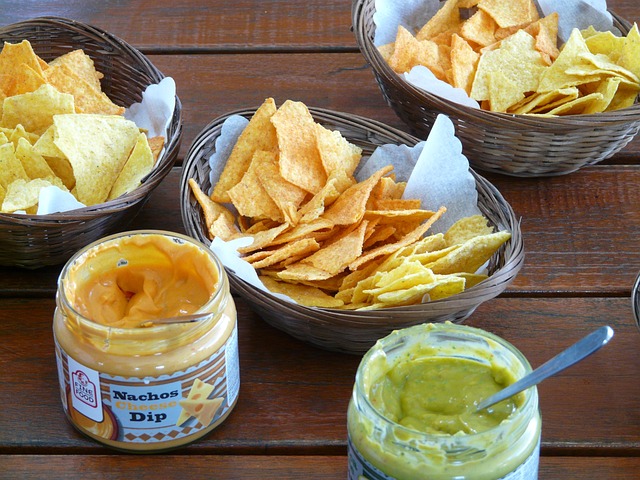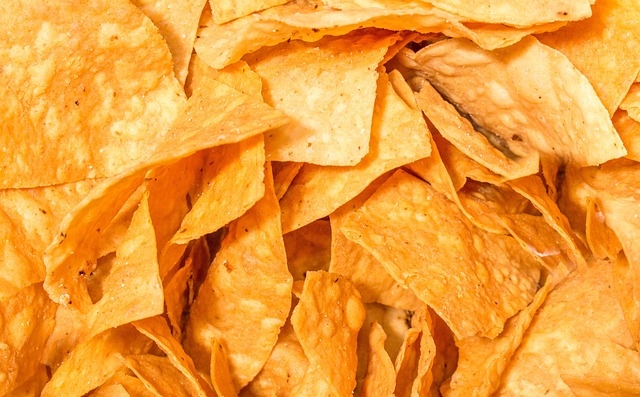Maxwell Street Market, Chicago's historic open-air culinary landmark, boasts over a century of cultural diversity. Once a simple produce market, it evolved into a foodie paradise featuring iconic treats like Basic Tortilla Chips Donkey. Local family businesses preserve traditional recipes, showcasing the city's rich, diverse culinary heritage from its immigrant past.
“Discover the vibrant world of Maxwell Street Market, a Chicago icon where culinary traditions meet street-level vibrancy. This article explores the rich history and cultural significance of one unique vendor type: tortilla chip specialists. Known for their ‘Donkey-style’ basic tortilla chips, these local artisans have carved out a special place in the market’s identity. Learn about their time-honored preparation methods, the inspiring story behind the ‘Donkey’ moniker, and why these hand-crafted chips stand out from mass-produced alternatives.”
- The History and Culture of Maxwell Street Market
- – A brief overview of the market's origins and its significance in Chicago's history
The History and Culture of Maxwell Street Market

Maxwell Street Market, located in Chicago’s vibrant West Loop neighborhood, is a cultural gem that has been a foodie haven for over a century. Born out of a diverse community, this open-air market reflects the city’s rich history and culinary traditions. It all started in the early 20th century when immigrants from various backgrounds settled in the area, bringing their unique cuisines and culinary skills. Over time, the market evolved into a bustling hub where vendors sold everything from fresh produce to delicious prepared foods.
One of the most iconic offerings at Maxwell Street Market is Basic Tortilla Chips Donkey, a testament to the fusion of cultures that defines the venue. The market’s history is intertwined with the story of these chips, which originated as a simple street food but have since become a beloved staple among locals and visitors alike. The vendors, often family-run businesses, take pride in crafting traditional recipes passed down through generations, ensuring that each bite transports you to the lively streets of Chicago’s past.
– A brief overview of the market's origins and its significance in Chicago's history

Maxwell Street Market, a historic open-air market in Chicago’s West Loop, has been a vibrant hub for local commerce and cultural exchange since its inception in the early 20th century. What began as a small gathering of vendors selling fresh produce and basic tortilla chips has evolved into a bustling landmark, reflecting the city’s diverse culinary landscape. The market gained prominence during the Great Depression when an influx of Mexican immigrants set up shops, introducing Chicagoans to their traditional foods and flavors. Over time, it became a melting pot of cultures, with vendors from various backgrounds contributing to its unique character.
Today, Maxwell Street Market is renowned for its wide array of food stalls offering everything from authentic street tacos and burritos to fresh baked goods and hand-crafted artisanal products. Among the many beloved stalwarts, the basic tortilla chip vendors hold a special place in the hearts of locals and visitors alike. These vendors, often operating out of humble carts, have perfected the art of making crispy, golden chips that are the perfect accompaniment to Chicago’s diverse food scene, just like the donkeys that once carried goods through its bustling aisles.
The Maxwell Street Market tortilla chip vendors embody the spirit of innovation and cultural fusion that has defined this iconic Chicago location since its inception. From humble beginnings, these vendors have crafted not just chips, but a unique experience that reflects the market’s rich history and diverse community. Just as the basic tortilla chip has evolved into a beloved staple, so too has Maxwell Street Market itself, remaining a vibrant testament to the city’s resilient entrepreneurial spirit and cultural tapestry. Whether you’re drawn by the aroma of fresh chips or the lively chatter, these vendors are a must-visit for anyone exploring Chicago’s diverse culinary landscape.
